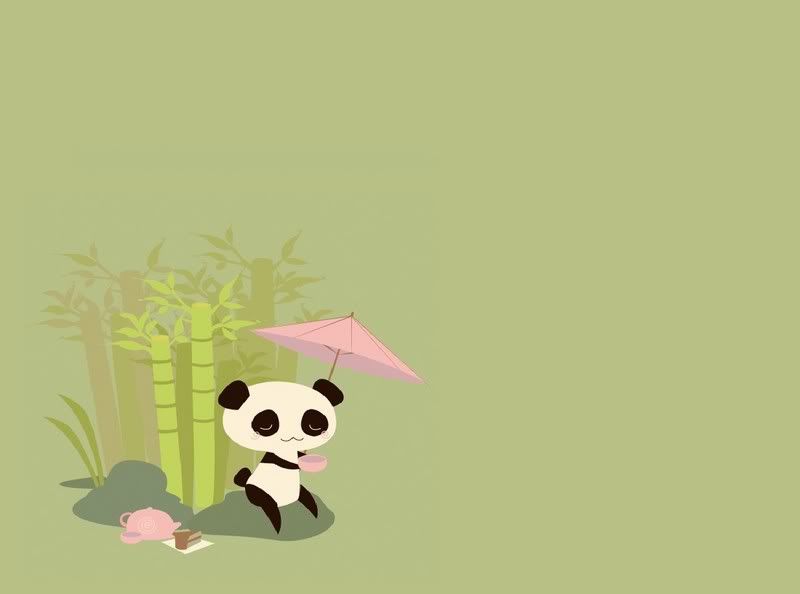Thursday, December 31, 2009
Few people visit this blog anymore, and hardly. I guess we've just moved on; group blogs rarely survive beyond two batches, unless there's no other choice of reusing the same blog. Subconsciously, after surfing all websites of interest, I'll shift my mouse over to the rarely-click link of this blog. It's like seeing a medal which you won during primary school; you know you competed in that match and won, but the exact details of it remain fuzzy, like how much you've trained for it, and even the actual event seems to be a silhouette from the past. With a shrug, you put that dusty medal back into the cabinet; the next time you see it may be years later.
I really wonder what happened to that Snakes & Ladders mat, that miniature model of the Green Family, and even more curious on what happened to their makers and friends. It seems we've all moved on, but in which direction? How, where and when?
Should there even be an answer? I think not, because I want to preserve the memories of then and there. What happens later may not be as important as what has happened. More importantly, at least the refusal to know 'what happens later' allows one to harbour hopes, dreams and wishes built on that brief moments of time, to hanker after a possibility...A rosy union which is impossible after knowing 'what happens later'.
Happy New Year! Enjoy the Chipmunk version of the song, Xin Yuan Bian Li Tie.
12:06 AM
Friday, February 6, 2009
Hellooo :) sorry i haven't been posting up things for A LONG TIME. :(let me just post up an AWESOME greenlink promotional video that A LOT of orientation ppl and OGLs commented was GREAT. (i mean it .... hehe)
Thanks to the behind-the-scenes stages:
1. Stage 1: ALL GREENLINKERS for their ideas, concepts etc (we really discussed quite long about this hahah).
2. Stage 2: Vivien, for being our artist, and practicing so hard to draw a perfect picture!
3. Stage 3: Derek, for taking the video :) (with my wonderful camera.)
4. Stage 4: Jia Min, for providing the music!!!
5. Stage 5: Silvesta! for editting the video.
ALSO, thanks to Jia Min and Hui Yong for designing the posters for CCA DAY! (we seriously should limit the number of posters of ALL ccas for cca day. there were WAY TOO MANY posters and wasted so much paper.)
Thanks to Yann Qi tooooo for coming up with very fresh and interesting ideas for our educational posters!!!
8:09 PM
Wednesday, November 19, 2008
Recommended 'green' books to read:1. Small is Beautiful: Economics as if People Mattered by E.F. Schumacher
2. The Road by Cormac McCarthy
3. Common Wealth: Economics for a Crowded Planet by Jeffrey Sachs
The second one is a fiction and acclaimed work, published just recently.
Below is a list of "19 Novels/Plays/Poetry You Can Read Before You Are Nineteen", which I feel should be an enjoyable read. I've always wanted to read them, but was finding excuses not to. Inclusive of the books above, they are:
1. Siddhartha by Hermann Hesse
2. War and Peace by Leo Tolstoy
3. One Hundred Years of Solitude by Gabriel García Márquez (re-reading)
4. Crime and Punishment by Fyodor Dostoyevsky
5. The Prince by Niccolo Machiavelli
6. The Republic by Plato
7. How To Win Friends and Influence People by Dale Carnegie
8. The Waste Land by T.S. Eliot
9. Hamlet by Shakespeare
10. Don Quixote by Miguel de Cervantes Saavedra
11. 2001: A Space Odyssey by Arthur C. Clarke
12. The Complete Sherlock Holmes by Sir Arthur Conan Doyle
13. The Hitchhiker’s Guide to the Galaxy by Douglas Adams
14. Collected Poems by W.B. Yeats
15. Poems by Ted Hughes
16. The Sonnets by Shakespeare
Brave New World and 1984 are enlightening work too, and even selected text for A level literature. Don't think I'll like to reread them now, so they are still nicely kept in my cabinet. Keep up with recycling.
4:50 PM
Wednesday, September 17, 2008

This stranger whom you have just met has a few basic assumptions. One, locality matters in measuring the worth of actions. Two, human beings are superior than elephants, or animals in general, that's why we should help them more instead of elephants.
On the first point, it is easy to refute. Locality does not matter since the sum of human utility in the world is equal to the maximum welfare of mankind. Contributing to local charities rather than overseas charities is still considered raising the utility of people, and vice versa. People seem to believe that by helping people close to us, we benefit more than by helping people further from us. Strictly speaking, according to the utilitarian view, it does not matter since we are still maximising the welfare of mankind.
For the second point, however, we have to consider if human beings and animals are equal. You may immediately begin by thinking, that all lives should be treated equal. This is precisely the Buddhist view that all beings in the world are reincarnated - a man might become a cockroach in the next life and vice versa, therefore the 'soul' is permanent. Hence the lives of human beings and animals should be given equal weight.
Apparently this stranger still thinks humans are superior than animals, so it's more rewarding to help ourselves instead of elephants. For this assumption, I must invite philosopher Peter Singer (he is alive, by the way, not all philosophers are dead) to argue his case. He claims that people are guilty of 'speciesism' - we discriminate against animals, just as racists discriminate against other races.
The typical arguments racists use to justify their causes are that other races have lower intellect, less strong or maybe even less human, therefore it is right to discriminate them to protect their status. Sexists can claim women do not have the right ability for some jobs, so based on differences in ability, they discriminate women. Similarly, 'speciesists' see great differences between people and animals, so we discriminate against them by exploitation, through the easy act of eating them and vivisection.
Races and sexes are increasingly equal, because people have come to realise that though there may be fundamental differences between men and women, or genetic differences between different races resulting in different abilities, the fact is that the claim to equality is NOT based on eliminating these differences at all. We understand that men and women have different abilities in performing a job, yet we give them equal opportunities in trying for it, because equality is a moral ideal, a principle which we accord greater respect as our society progresses.
There may be differences between an elephant and a human, but even by eliminating these differences, they can still be unequal. This is because both have different capacities for pleasure and pain. And I adhere to the principle of equality by treating both equally.
When I mention different capacities for pleasure and pain, this is important for us to understand why we are helping the elephants. Can a mentally retarded person enjoy more than a mother elephant? We have no certain way of knowing, and one suspects the answer tends towards a 'nil'. Peter Singer continues to argue that since animals have the capacity for pleasure and pain, then they have interests in the world, which should be protected similarly to raising the utility of disabled people.
Therefore by giving disabled elephants prosthetic legs, we are protecting their interests and maximising the welfare of all life on this planet. There is no difference between helping elephants and disabled people. Some can choose to ignore the pain elephants are suffering, and even if they see them enduring it, they may not feel it themselves. Yet this is still no argument that animal lives are worth less than human lives. This highlights instead that we are not fully maximising the welfare of all beings in the world.
This may seem a long answer to the stranger. But I'm trying to tell you, us, that because elephants are treated equally as we treat one another, then there is justification for sending tonnes of can tabs to Thailand. By minimising their pain, we protect their interests. By doing so we raise their utility and all of us benefit from greater welfare. I cannot convert this into monetary terms, since I've just failed Maths, but I can argue that this intangible welfare is what leads to John Stuart Mills (dead philosopher)'s 'Greatest Happiness Principle'. You do have to admit, elephants are cute and we enjoy seeing them with 4 legs instead of 3.
Keep on collecting those can tabs! You are doing in part for both mankind and elephant-kind! May the Force be with you.
10:22 PM
Sunday, August 17, 2008
“Bad news: Wednesday we’ll need all of you to remove newspapers out of the Greenlink room… Good news: We’re doing something for the environment :D”- Jasly Koo, Head of Greenlink’s Recycling Committee (2007-2008), 28 April 2008
a) Explain how recycling can be a source of market failure. (8m)
Market failure occurs when the price mechanism of the free market fails to allocate resources in an efficient and optimum manner. There are several sources of market failure such as imperfect competition, externalities and provision of public goods. Recycling slows down the pace which raw materials is used currently, and helps to conserve these raw materials for future generations. Therefore it provides a positive externality.
By collecting newspapers for recycling, Greenlink is engaging in the production of recycled goods. This is a positive externality as it provides an external benefit to third parties for whom no payment was made to the private consumer (i.e. students) and producer (Greenlink). This external benefit is captured in the Marginal External Benefit (MEB) as raw materials (paper) are conserved for usage by future generations. The more immediate benefit is less waste is produced, so that the landfill at Pulau Semakau can be sustained for a longer period of time. In addition, the reduction of waste will also result in less waste being incinerated, so smoke emissions will potentially be minimized. This will contribute to a better air quality in Singapore. Clearly third parties such as the average person benefit from this private production.
This MEB creates a divergence between Marginal Private Benefit (MPB) and Marginal Social Benefit (MSB). Assuming that Marginal Social Cost (MSC) = Marginal Private Cost (MPC), Greenlink will produce at the equilibrium point 1 where MPB meets MSC, as it fails to internalise this external benefit. However, the socially optimum level of production is actually at the equilibrium point 2 where MSB meets MSC. The quantity of recycling at equilibrium point 2 is greater than that at equilibrium point 1. Therefore there is under-production of recycling and this leads to an inefficient allocation of resources.
The benefits are greater than the costs incurred by shifting production from equilibrium point 1 to equilibrium point 2. As production is at the socially inefficient level of equilibrium point 1, the net benefit lost is considered the deadweight loss to society. Society’s welfare is not fully maximized. Hence as there is a lack of efficient and optimal allocation of resources by the price mechanism, market failure has occurred in the production of recycled goods. This justifies government intervention in the market.
11:05 PM

